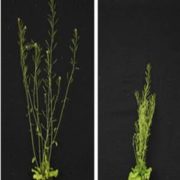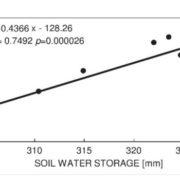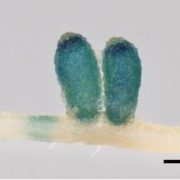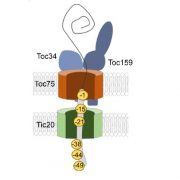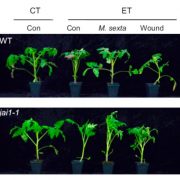A shoot-derived miRNA ensures susceptibility to beneficial rhizobacteria in legumes (Science)
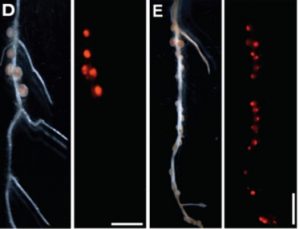 Nitrogen-fixing rhizobacteria and leguminous plants engage in a tightly controlled root symbiosis resulting from bacteria-to-plant as well as (plant) shoot-to-root communication. This interplay controls the initiation and maintenance of root nodule development while preventing the over-production of nodules. In a keystone article published in Science, Tsikou et al. discovered that a shoot-derived microRNA is responsible for maintaining a susceptible state in legume roots to allow for the entry of symbiotic rhizobacteria. The group demonstrate that the shoot-derived microRNA miR2111 travels from shoots to roots to negatively regulate the kelch repeat F-box protein TOO MUCH LOVE (TML). This miRNA-mediated suppression of TML sensitizes roots to the presence of rhizobacterial Nod factors ensuring susceptibility and subsequent microbial colonization. Once colonized, miRNA2111 itself is negatively regulated both in roots and shoots, which de-represses TML and prevents hypernodulation. Together these data very elegantly tease apart the sophisticated long-distance signaling mechanisms employed by legumes to acquire and control bacterial symbionts in an efficient and sustainable manner. (Summary by Phil Carella) Science 10.1126/science.aat6907
Nitrogen-fixing rhizobacteria and leguminous plants engage in a tightly controlled root symbiosis resulting from bacteria-to-plant as well as (plant) shoot-to-root communication. This interplay controls the initiation and maintenance of root nodule development while preventing the over-production of nodules. In a keystone article published in Science, Tsikou et al. discovered that a shoot-derived microRNA is responsible for maintaining a susceptible state in legume roots to allow for the entry of symbiotic rhizobacteria. The group demonstrate that the shoot-derived microRNA miR2111 travels from shoots to roots to negatively regulate the kelch repeat F-box protein TOO MUCH LOVE (TML). This miRNA-mediated suppression of TML sensitizes roots to the presence of rhizobacterial Nod factors ensuring susceptibility and subsequent microbial colonization. Once colonized, miRNA2111 itself is negatively regulated both in roots and shoots, which de-represses TML and prevents hypernodulation. Together these data very elegantly tease apart the sophisticated long-distance signaling mechanisms employed by legumes to acquire and control bacterial symbionts in an efficient and sustainable manner. (Summary by Phil Carella) Science 10.1126/science.aat6907



